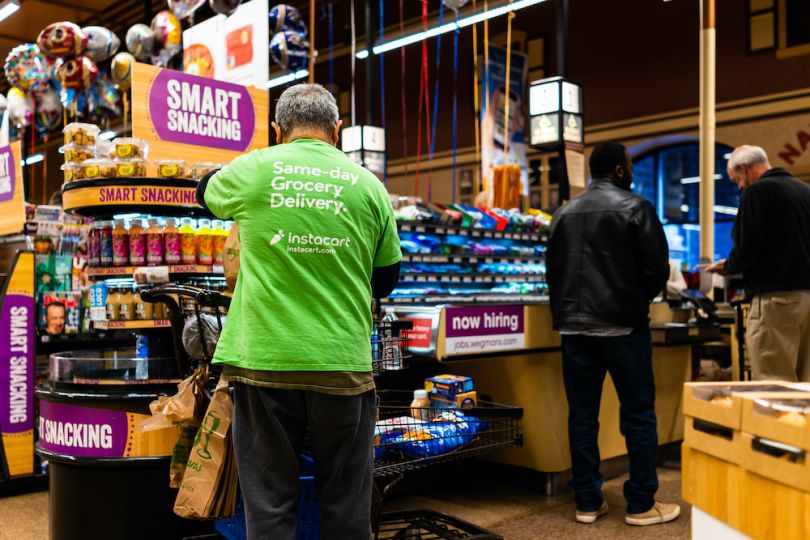
Post-pandemic planning: Tech companies have been credited with leading the trend of workplaces closing their offices and going remote as the spread of COVID-19 began in the United States, so it stands to reason they’ll help set the standard for how industries can safely return to the office once the pandemic begins its decline. Kirsten Wolberg, DocuSign’s chief technology and operations officer, says the company will be taking its time and following the lead of health officials in continuing to craft its plan. [Wall Street Journal]
A virtual Silicon Valley: While the vast majority of the tech workforce remains cooped up inside, investor Brianne Kimmel got creative and launched the Stay at Home Valley. In partnership with designer Fiona Carty, they used the design tool Figma to create a virtual environment that aims to recreate the bustling tech scene online. The interactive map even includes popular haunts like Boba Guys and climbing gyms. The virtual world is now expanding to include other tech hubs like LA and Seattle. [Fast Company]
Instacart looks to hire 250,000: The SF-headquartered grocery delivery startup has seen an unprecedented spike in business due to the pandemic, and doubled its workforce by hiring 300,000 more workers over the course of just a month in response. As the company’s president puts it, the surge has meant that every day is “a new Black Friday” for the service. Now, it’s looking to bring on 250,000 more shoppers within the next two months. [Bloomberg]
Uber adds new delivery services: The ride-hailing app has been quick to pivot in response to the pandemic, as ridership is down (though Uber Eats usage has surged). Last week, it launched Uber Direct and Uber Connect to help both individuals and companies facilitate local deliveries of various items. The company’s goal is to keep its workforce busy (and keep revenue coming in) amid the pandemic. [Built In SF]
Food Runners opens first kitchen: The nonprofit that works to simultaneously reduce hunger and food waste is also pivoting in response to the pandemic. Because it has seen a drop in donations of prepared food linked to the shutdown of tech offices and their kitchens due to the stay-at-home order, it is now preparing its own food using donations from local grocery stores. The organization says demand for the prepared food it typically offers has increased. [SF Chronicle]
Saving SF restaurants: A conversation with Salesforce CEO Marc Benioff prompted Food Network star Tyler Florence to launch a new effort to support local restaurants that are struggling due to the pandemic. Florence, who owns Wayfare Tavern in SF, took to Instagram last week to announce what he’s calling #RestaurantsRedefined. He’s encouraging other restaurants to use the Patreon platform to sell memberships that come with recipes, cooking demos and other exclusive offerings. [SF Business Times]
Armory sees code deploys surge: The San Mateo-based continuous delivery startup is noticing customers rushing to deploy new features in light of the pandemic. We spoke with leaders at the company about how they’ve put feature deployment in developers’ hands. [Built In SF]
Virus detection glasses coming to the U.S.? Chinese startup Rokid has developed and is selling thermal imaging glasses that it says can “see” peoples’ temperatures from up to 10 feet away. The company, which also has an office in SF, has deployed them successfully abroad and is now marketing them to businesses and hospitals in the U.S. Technology like this, while raising some privacy concerns, could prove helpful as the nation looks to reopen for business. [SingularityHub]



